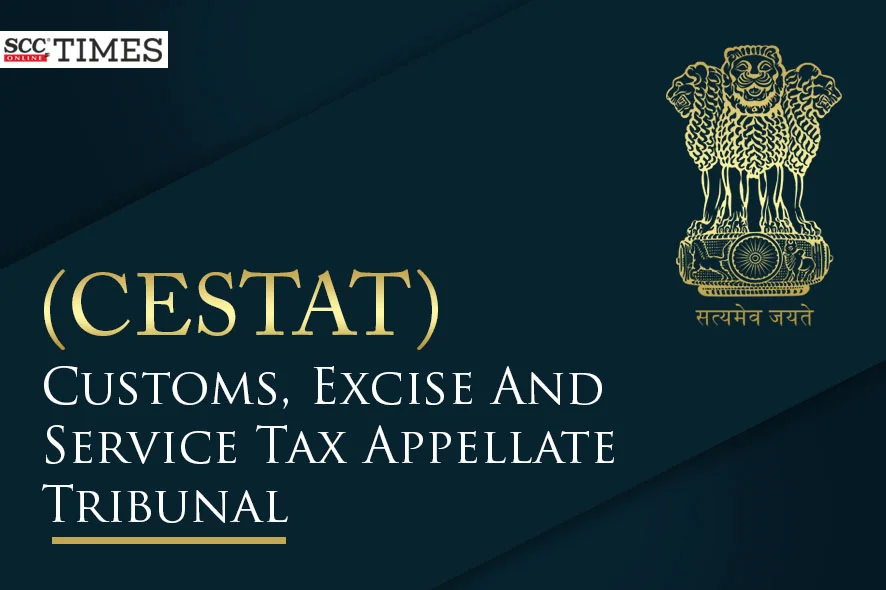Customs, Excise and Service Tax Appellate Tribunal, Allahabad: Dish TV India Ltd.- Appellant filed the present appeal against the order dated 12-01-2018 passed by Commissioner (Audit) CGST, Noida (‘Adjudicating Authority’). P.K. Choudhary, Member (Judicial) and Sanjiv Srivastava, Member (Technical) referred to the definition of ‘input’ under Rule 2(k) of the CENVAT Credit Rules, 2004 (‘2004 Rules’) and opined that the input had been defined for an output service provider to mean goods used for providing any output services except certain goods which had been specifically excluded. The Tribunal observed that set top boxes did not find any mention in the exclusion category and that being so, there was no reason as to why these could not have been treated as input for provision of the output services by the appellant.
The Tribunal opined that there was no dispute that CENVAT credit was admissible to appellant, and revenue’s only dispute was with regards to the admissibility under capital goods for any inputs and that too on the basis of accountancy practices followed by appellant. The Tribunal opined that it did not find any merits in the argument that just because these goods had been capitalized in the books of accounts, they could not have been treated as input, and allowed the present appeal.
Background
Appellant was engaged in providing output services under the category of Broadcasting Services and was availing the facility of CENVAT credit. During the course of the audit, it was observed by the Revenue that appellant was taking credit on the Set Top Boxes provided by them to their customers for receiving the signals by treating them as input. It was observed that these goods being classifiable under Chapter 85 of the First Schedule to the Customs Tariff Act, 1975 were covered by the definition of capital goods and thus the act of taking 100% credit immediately on the receipt of the said goods was not proper and only 50% of credit should have been taken during that financial year and next 50% should have been gone to the next financial year.
Subsequently, a show cause notice dated 30-03-2013 was issued to appellant. The show cause notice was adjudicated as per the impugned order, whereby the Adjudicating Authority ordered to demand and recover interest amount of Rs. 6,30,94,154 from the appellant under Rule 14 of the 2004 Rules read with Section 75 of the Finance Act, 1994. Penalty of Rs. 5,000 was also imposed under Rule 15A of 2004 Rules for contravention of Rule 4(2)(a) of 2004 Rules. Further, demand of Rs. 14,03,43,252 was set aside.
Thus, aggrieved by this, appellant filed the present appeal. Appellant submitted that it had taken credit on the set top boxes by treating them as input as there is no restriction in the definition as per Rule 2 (k) of 2004 Rules, which excluded these from the definition of inputs and these set top boxes were used by the appellant for providing the output services and hence correctly covered under the said definition. Appellant further stated that definition of inputs was wide enough to cover these set-top boxes under that category and the Department wanted to put these goods under the category of capital goods only for the reason that these goods were capitalized in their book of accounts, and depreciation claimed for income tax.
Analysis, Law, and Decision
The Tribunal noted that it was evident from the impugned order that the demand of Rs. 14,03,43,252 in respect of inadmissible credit had been dropped by the adjudicating authority. Further, demand of interest had been modified from Rs. 12,29,38,369 to Rs.6,30,94,154. Thus, the Tribunal was concerned only with the demand of interest made by the adjudicating authority by holding that these set-top boxes were not inputs but capital goods.
As appellant was provider of an output service, the Tribunal referred to the definition of ‘input’ under Rule 2(k) of the 2004 Rules and opined that the input had been defined for an output service provider to mean goods used for providing any output services except certain goods which had been specifically excluded. The Tribunal observed that set top boxes classifiable under Chapter 85 did not find any mention in the exclusion category and that being so, there was no reason as to why these could not have been treated as input for provision of the output services by the appellant. The Tribunal stated that it was a well settled principle in the law that the taxing statute was to be construed strictly according to the words phrases used in the statute and there could be no other interpretation when literal interpretation was unambiguous.
The Tribunal opined that there was no dispute that CENVAT credit was admissible to appellant, and revenue’s only dispute was with regards to the admissibility under capital goods for any inputs and that too on the basis of accountancy practices followed by appellant. The Tribunal opined that it did not find any merits in the argument that just because these goods had been capitalized in the books of accounts, they could not have been treated as input, and allowed the present appeal.
[Dish TV India Ltd., v. Commr. (CGST), 2024 SCC OnLine CESTAT 508, Order dated 06-05-2024]
Advocates who appeared in this case:
For the Appellant: A. R. Madhav Rao, Advocate, Tushar Joshi, Advocate, Mukunda Rao, Advocate and Nishant Mishra, Advocates;
For the Respondent– Santosh Kumar, Authorized Representative for the Respondent







